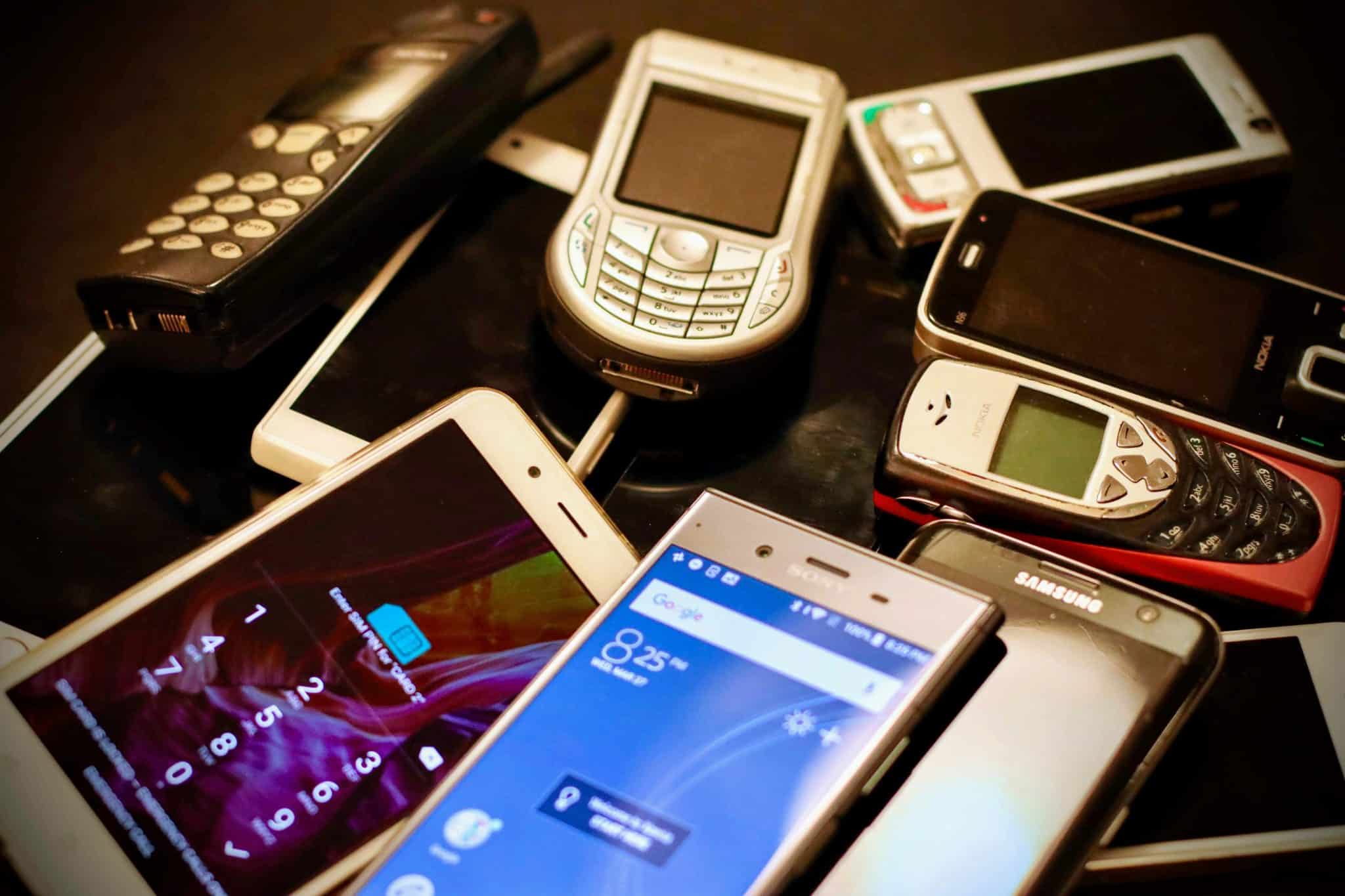Digital Wellness: How Screen Time Affects Mental Health

Chances are, you’ve fallen victim to TikTok’s endless scroll or Instagram’s explore page. Perhaps you start your day with the New York Times’ Connections, move mindlessly to the mini crossword puzzle, and then wrap your routine with Wordle. No matter how we use our devices, most of us spend more time than not eyes-deep in our screens—often to the point of sacrificing healthier habits.
In this comprehensive guide, we’ll delve into the impacts of too much screen time, how it can detrimentally affect our well-being and productivity, and, most importantly, offer strategies for achieving digital wellness through a balanced approach to technology.
The Impacts of Excessive Screen Time
Physical Health Concerns
Excessive screen time can have significant physical impacts on individuals of all ages, contributing to a host of health concerns. Let’s delve deeper into the physical effects of prolonged screen exposure:
- Sedentary Lifestyle: When we spend too much time glued to screens, we’re often sedentary, barely moving a muscle. This lack of physical activity isn’t just a minor inconvenience—it’s a serious health hazard. It paves the way for unwanted pounds, weakened muscles, and a heart that’s not as strong as it should be. The evidence is clear: long hours of sitting or lying down can set the stage for obesity, heart issues, and type 2 diabetes.
- Disturbed Sleep Patterns: Sorry, but we want what you’re having if you’re not cranky after a bad night’s sleep. While one more YouTube video may have sounded like a good idea at the moment, all that blue light emitted from your smartphone probably did a number on you. That’s because it interferes with the body’s natural sleep-wake cycle and suppresses melatonin production, the hormone responsible for regulating sleep. The result? Difficulty falling asleep, staying asleep, and poor sleep quality. Try some ambient noise instead. Freedom offers an array of ambient sounds that can help soothe you to sleep.
- Eye Strain and Vision Problems: Ben Stein warned us first, but if you work from your computer all day, you probably know about eye strain, dry eyes, and general discomfort all too well. Plus, all the symptoms that come with them, like headache, fatigue, and difficulty focusing. Sometimes, not even blue light glasses can keep you protected. With that, we say, “It’sit’s okay to take frequent breaks from your devices.” In fact, the docs recommend it. Try the 20-20-20 rule. For every 20 minutes a person looks at a screen, they should look at something 20 feet away for 20 seconds.
- Musculoskeletal Issues: Whether you’re hunched over a computer desk from 9 to 5 or constantly texting away on your smartphone, that static posture is a recipe for musculoskeletal trouble. We’re talking neck pain, backaches, tight shoulders, and the dreaded repetitive strain injuries like carpal tunnel syndrome. And it’s not just the devices—it’s how we use them. Bad ergonomics and slouching worsen matters, setting us up for ongoing discomfort and limited mobility.
- Reduced Physical Activity: Remember when it was a chore to get you off the playground or to keep you from another ride around the block on your bicycle? Now, parks and streets are empty. Instead, children and adolescents are trading exercise and outdoor recreation in favor of screen-based activities. And that only leads to a myriad of physical health consequences like obesity, diabetes, and the worsening of preexisting conditions. The solution? Try and set aside at least an hour for physical activity and exercise each day. Your phone will still be there when you’re finished.
Mental Health Ramifications
Excessive screen time doesn’t just take a toll on our physical health; it can also significantly affect our mental well-being. Let’s explore some of the mental health impacts associated with spending too much time in front of screens:
- Increased Risk of Depression and Anxiety: Research has shown a strong correlation between excessive screen time and heightened levels of depression and anxiety, particularly among adolescents and young adults. Excessive social media use, in particular, has been linked to feelings of loneliness, envy, and social comparison, exacerbating mental health issues.
Think about it. You log into Instagram and see your followers out with friends, on vacation, or at a sold-out concert. TikTok’s feed fuels overconsumption with influencer hauls and spending sprees. It’s nearly impossible not to compare yourself to the people you see on your screens.
- Mood Disorders: According to the Pew Research Center, at least half of adults in the U.S. use some form of social media as their news source, primarily Facebook. In a time when continuous news delivery and media overload floods our devices, it’s no wonder excessive screen time can contribute to mood swings, irritability, and emotional instability. It’s how terms like “doom scrolling” and “headline anxiety” came to be.
- Lowered Self-Esteem: Whether we like it or not, we live in the era of AI, when the click of a button or a one-word prompt can completely manipulate the images we see daily. On the other hand, an entire generation of people who post regularly on social media platforms uses Facetune, a cheap, easy-to-navigate editing app with the power to smooth skin, slim figures, or skew any body part you please.
Constant exposure to these carefully curated images and unrealistic standards can cause individuals to compare themselves unfavorably, fostering insecurity, self-doubt, low self-esteem, and negative self-image.
- Impaired Cognitive Function: Most of us can relate to this scene: on one screen, a Zoom call for work; on another, a window with twenty tabs open and a half-drafted email ready to be sent; and then, a slew of personal notifications on the cell phone beside us. Well, a recent study has confirmed that digital habits like those described can harm our brains. The study found that excessive screen time and multitasking impact executive functions like impulse control, planning, organization, and problem-solving. Not only that, if cognitive impairment goes untreated, it can compound over time.
- Social Isolation: We’ve all done it, replaced in-person interaction with the convenience of texting and FaceTime. While sometimes this makes sense, given distance or busy schedules, excessive reliance on digital communication that detracts from face-to-face interactions and meaningful social connections can contribute to those not-so-nice feelings of isolation and disconnection from others. Basically, it honors avoidant-coping behaviors that have lasting impacts.
In fact, a recent study on screen time and isolation found that loneliness can impact our health and longevity more than obesity, smoking, or drinking.
- Addiction and Dependency: Social media and phone addiction, classified as behavioral addictions, are real and rampant. Like with any addiction, a person feels an extreme compulsion to use their device, so much so that when they can’t, they experience withdrawal symptoms. There’s a simple explanation for it. The endless likes, notifications, and comments can cause the brain to release dopamine (think pleasure) that reinforces additional (and addictive) social media use. But the impacts can be detrimental, impairing self-regulation and exacerbating feelings of anxiety and distress when separated from digital devices.
How Reducing Screen Time Promotes Digital Wellness
Fortunately, the solution to reduce screen time lies within our grasp. We can pave the way for a healthier and more fulfilling lifestyle with digital detox and wellness strategies.
Strategies for Digital Detox & Wellness
Embarking on a digital detox journey may seem daunting at first, but with the right strategies, it’s entirely achievable. Here are some actionable tips to kickstart your journey to digital wellness:
- Turn Off Your Push Notifications – We promise, you won’t miss the constant buzz of notifications while you’re at work or with friends. With Freedom, it’s easy to minimize distractions and silence non-essential messages. Plus, you can still keep the critical text and email comms on, just in case.
- Creating Device-Free Zones – Rules aren’t fun, but sometimes, they really do work. Designate specific areas in your home as device-free zones and stick to them. Try no phones at the dining table, or no social media after a specific time of day. It will lead to more genuine human connections and great relaxation.
- Delete Unnecessary Apps – We usually have a pretty good idea of how we spend our time online, but if you are curious, you can check your screen time and app usage to create a more accurate picture. With that info in tow, try to cut back or remove any extra apps contributing to the mindless scroll. You’ll quickly realize how much additional time you have for more fulfilling activities.
- Use One Device At A Time – Say it with us. One. Screen. At. A. Time. There’s just no need for more than one device at a time. We know it’s tempting to check Twitter during the new episode of Bachelor Nation, but it can wait! Focusing on one task enhances productivity and reduces cognitive overload. Plus, you’ll never have to rewind another rose ceremony.
- Use Airplane Mode – When all else fails, resort to airplane mode to sever digital distractions at the source. Temporarily disconnecting from the online world creates a conducive environment for concentration and mental clarity, one that we can all benefit from every now and then.
Stay Distraction-Free With Freedom
Achieving digital wellness doesn’t mean completely unplugging from the online world. Think of it more as finding the sweet spot between screen time and mental health. When we recognize how too much screen time can affect us, and try some helpful detox tricks, we can take charge of our lives.
As you embark on your digital wellness journey, we’re here to provide the tools you need to combat screen addiction. At Freedom, we offer a comprehensive solution, enabling users to regain control over their digital habits and prioritize their well-being. Sound good? Start your free trial today and take the first step towards a healthier relationship with technology.


